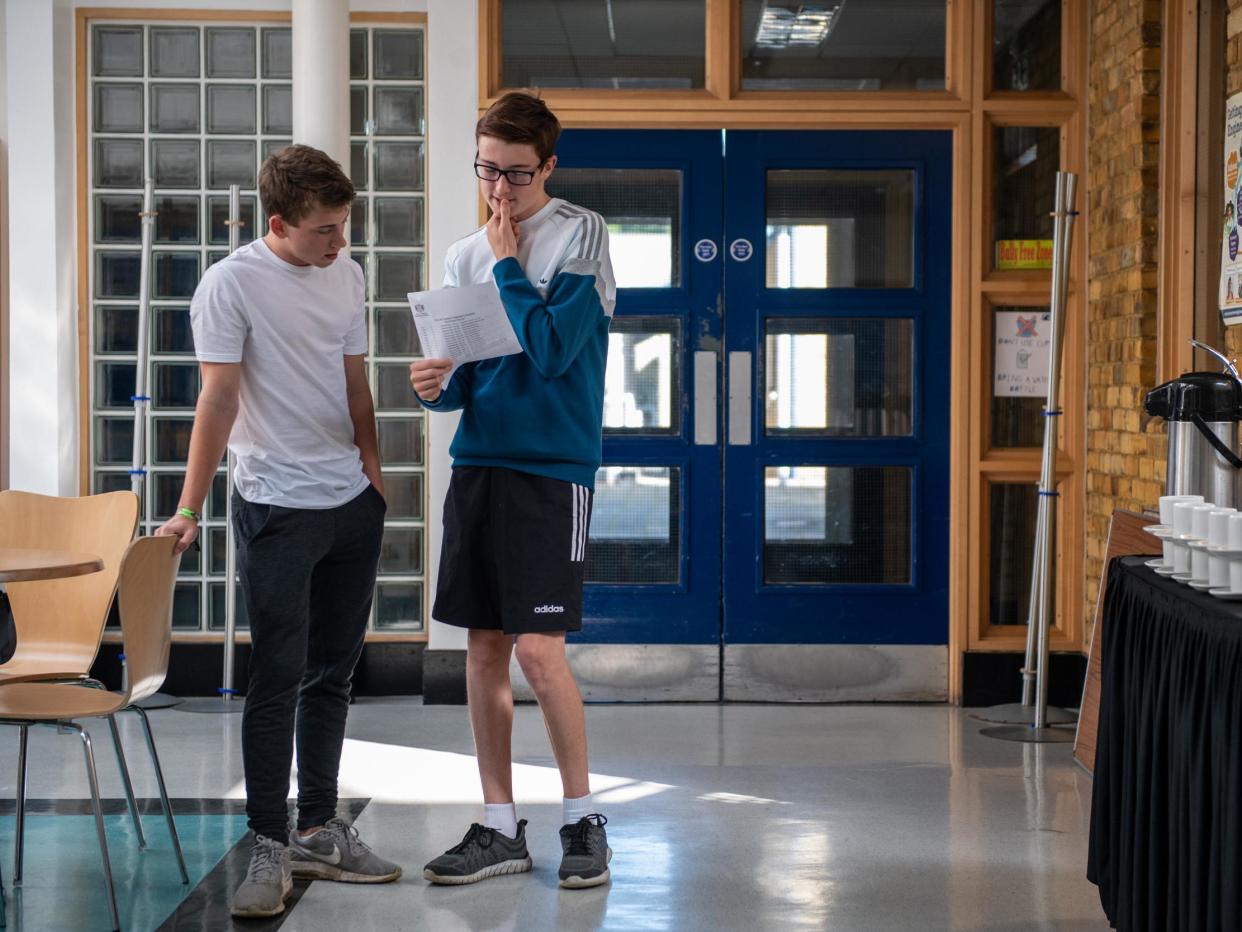Letting teachers award exam results without supervision is grossly unfair to all students

Students, teachers, parents and politicians want the examination grades awarded each year to be “fair”. I agree in principle, but with an important caveat: fair to whom? The obvious answer is that this year’s grades must be fair to the students who could not take their exams over the summer following the decision to cancel GCSEs and A-levels. If only it were that simple.
Ofqual, the examination regulator in England, is hardly a household name. Nevertheless, behind the scenes every year, it carries out several important functions that give our exam system the rigour and respectability that it deserves. One of these functions – which is a legal duty Ofqual must adhere to – is ensuring that the level of attainment in examinations is broadly consistent over time. In other words, you cannot have students in one year getting wildly different results from those in other years because too much variation would seriously undermine confidence in our whole exam system.
In the absence of GCSEs and A-levels this year, teachers were asked to rank their students from best to worst performers in every subject and then assign grades to each student. These grades were submitted to the examination boards (the organisations that normally write the exam papers), who subsequently worked with Ofqual to check that the grades determined by teachers were broadly in line with previous years and reflected the prior attainment of the cohort of students. If the grades from teachers were too high, they could be reduced.
The problem is that teachers’ estimated grades for their students ended up being too generous compared to the results achieved in previous years, and not by a small margin. In 2019, 7.7 per cent of students achieved an A* at A-level. If the grades submitted by teachers this year had been allowed to stand, the percentage of A* grades would have leapt to 13.9 per cent.
Imagine that you sat your A-levels last year. You worked incredibly hard for months on end, with all the stress and anxiety that can come with high-stakes exams. You endured a huge number of exams over several weeks, with each one testing your abilities to the very limit. How would you feel if you’d survived that gruelling experience, only to find that this year’s students – who didn’t sit, or revise for, a single exam – were awarded double the proportion of top grades compared to you and your classmates? Is that “fair”?
What about next year’s students, when our examination system will hopefully be back to its old self and students will be taking exams again. How will they feel if their results are far worse than this year’s cohort who never even took any exams? Is that “fair” on the class of 2021?
According to Ofqual, 60 per cent of the final A-level grades awarded to this year’s students were exactly what their teachers had awarded them. Overall, 96 per cent of A-level grades were the same as, or within one grade of, those submitted by teachers. Given the dreadful circumstances surrounding our education system at present, this level of agreement should be viewed as quite an achievement.
As a former A-level teacher, I know that hearing stories of students getting unusual or disappointing results this year was never going to be easy. Even so, following Scotland’s example by just allowing the grades awarded by teachers to remain untouched would be a dreadful and grossly unfair outcome. Instead, we should focus on protecting our examination system as it strives to be fair not only to this year’s students, but past and future students too.
Tom Richmond is director of EDSK, a think tank on education and skills, and a former teacher and government adviser
Read more
Nish Kumar attacks Jeremy Clarkson for A-Level results day tweet
How to get a university course place through Clearing on results day

 Yahoo News
Yahoo News 
